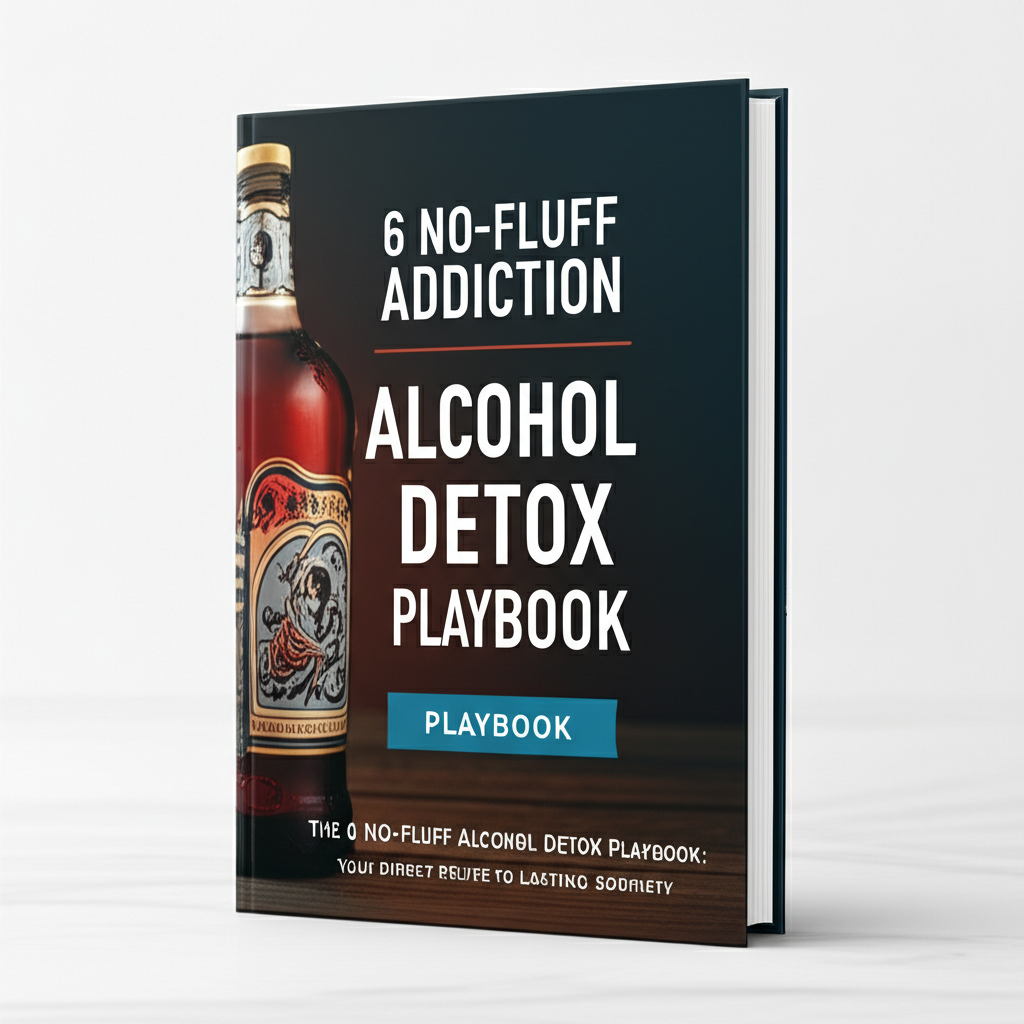The decision to reclaim your life from the grip of alcohol addiction is a monumental one, brimming with courage and the promise of a healthier future. However, for many, the very first hurdle – alcohol detoxification – looms as a daunting, even terrifying, prospect. Visions of intense withdrawal symptoms, discomfort, and uncertainty can deter even the most determined individuals.
But what if you had a clear roadmap? What if you understood the different pathways available, tailored to various needs and levels of dependence?
This comprehensive guide aims to demystify alcohol detox, presenting three definitive "playbooks" that outline the most common and medically sound approaches. We’ll break down who each playbook is for, what the process entails, and the critical considerations for a safe and successful start to your recovery journey. This isn’t about quick fixes; it’s about informed choices, empowered by knowledge, and always, always guided by professional medical expertise.
Let’s embark on this crucial first step together.
Understanding Alcohol Withdrawal: The Crucial First Step
Before diving into the playbooks, it’s vital to grasp why medically supervised alcohol detox is so important. Alcohol is a central nervous system depressant. Chronic, heavy drinking causes the brain and body to adapt to its constant presence. When alcohol is suddenly removed, the nervous system, no longer suppressed, goes into overdrive, leading to withdrawal symptoms.
Why Detox is Necessary
Quitting alcohol "cold turkey" without medical supervision can be not only incredibly uncomfortable but also life-threatening. The brain, accustomed to the depressant effect of alcohol, overcompensates when it’s removed, leading to a cascade of dangerous symptoms. This rebound hyperexcitability can result in severe complications that require immediate medical intervention.
Common Alcohol Withdrawal Symptoms
The severity and type of withdrawal symptoms depend on several factors, including the individual’s drinking history, overall health, and genetic predisposition. Symptoms typically begin within 6-12 hours after the last drink, peak around 24-72 hours, and can persist for days or even weeks.
Here’s a breakdown of common symptoms, ranging from mild to severe:
-
Mild to Moderate Symptoms:
- Anxiety and nervousness
- Shakiness (tremors)
- Headache
- Nausea and vomiting
- Insomnia
- Sweating
- Increased heart rate and blood pressure
- Irritability and mood swings
- Loss of appetite
-
Severe Symptoms (Medical Emergency):
- Hallucinations: Visual, auditory, or tactile disturbances (seeing, hearing, or feeling things that aren’t there).
- Seizures: Can occur suddenly and without warning, posing a significant risk of injury or death.
- Delirium Tremens (DTs): The most severe form of alcohol withdrawal, characterized by confusion, disorientation, severe agitation, rapid heart rate, high fever, and extreme tremors. DTs can be fatal if not treated immediately.
Given the unpredictable nature and potential severity of these symptoms, attempting to detox alone is never recommended. Professional medical guidance is paramount for safety and comfort.
Playbook 1: The At-Home, Medically-Guided Detox
This playbook is for individuals with mild to moderate alcohol dependence who meet specific criteria and are deemed low-risk for severe withdrawal complications. It emphasizes medical guidance even when detox occurs in the comfort of one’s home. It is not a recommendation for self-detoxification without professional oversight.
Who It’s For
- Mild to Moderate Dependence: Individuals who typically experience milder withdrawal symptoms (e.g., tremors, anxiety, insomnia) but have no history of seizures, DTs, or severe medical complications from past withdrawals.
- Strong Support System: A reliable, sober friend or family member who can monitor symptoms, administer medication (if necessary and prescribed), and provide emotional support.
- Good Overall Health: No significant underlying medical conditions (e.g., heart disease, liver failure, severe mental health disorders) that could complicate detox.
- Stable and Safe Home Environment: A trigger-free home where alcohol is completely absent, and the individual feels safe and supported.
- Access to Medical Professionals: Ability to attend regular virtual or in-person check-ups with a doctor or addiction specialist.
The Process
- Comprehensive Medical Assessment: The individual undergoes a thorough evaluation by a doctor specializing in addiction or a primary care physician. This assessment determines the severity of dependence, identifies any co-occurring medical or mental health issues, and assesses the risk of severe withdrawal.
- Personalized Medication Plan: If deemed appropriate for home detox, the doctor will prescribe medications to manage withdrawal symptoms. Benzodiazepines (like lorazepam or diazepam) are commonly used to reduce anxiety, prevent seizures, and stabilize the nervous system. Other medications might include anti-nausea drugs, sleep aids, or blood pressure medication.
- Daily Remote Monitoring: The individual (or their designated support person) will have regular check-ins with the medical team, often via phone or telehealth. These check-ins involve reporting symptoms, vital signs (if monitored at home), and medication adherence.
- Nutritional Support: Guidance on hydration and nutrition is provided, as appetite is often poor during detox.
- Post-Detox Planning: Discussion about follow-up care, therapy, and support groups begins even during detox, ensuring a smooth transition to long-term recovery.
Advantages & Disadvantages
-
Advantages:
- Comfort and Familiarity: Detox in a personal, private environment.
- Cost-Effective: Generally less expensive than inpatient options.
- Flexibility: Allows for continuation of some responsibilities (if symptoms permit).
- Reduced Stigma: More discreet for those concerned about privacy.
-
Disadvantages:
- Limited Medical Supervision: Not 24/7, relies heavily on self-reporting and support person vigilance.
- Higher Risk for Complications: If symptoms worsen unexpectedly, immediate medical intervention might be delayed.
- Environmental Triggers: Despite efforts, the home environment can still present temptations or stressors.
- Isolation: While at home, the individual might feel more isolated from professional support.
Key Considerations
- Honesty with Your Doctor: Be completely transparent about your drinking habits and medical history.
- Designated Support Person: This individual is crucial for safety and adherence to the plan.
- Emergency Plan: Know when and how to seek emergency medical care if symptoms escalate.
- Strict Adherence to Medication: Take all prescribed medications exactly as directed.
- Eliminate All Alcohol: Ensure there is absolutely no alcohol in the home.
Playbook 2: The Outpatient Medical Detox
The outpatient medical detox playbook offers a higher level of medical supervision than home detox while still allowing the individual to live at home. It’s a balanced approach suitable for individuals with moderate alcohol dependence who need more structured care but don’t require 24/7 inpatient monitoring.
Who It’s For
- Moderate Dependence: Individuals who experience more pronounced withdrawal symptoms but are not at immediate risk for severe complications like seizures or DTs based on their medical history.
- Stable Home Environment: A supportive, alcohol-free home is still important, but the daily clinic visits provide a stronger external structure.
- Reliable Transportation: Ability to travel to and from a medical facility daily.
- Co-occurring Conditions: May be suitable for those with well-managed co-occurring mental health conditions.
- Cannot Commit to Inpatient: Individuals who cannot take an extended leave from work, family, or other responsibilities but acknowledge the need for supervised detox.
The Process
- Initial Comprehensive Assessment: Similar to home detox, a thorough medical and psychological evaluation is conducted by an addiction specialist.
- Daily Clinic Visits: The cornerstone of outpatient detox. The individual reports to a clinic or hospital daily (or multiple times a day in some intensive programs) for several hours.
- Medical Monitoring: During clinic visits, vital signs (heart rate, blood pressure, temperature) are regularly checked, and withdrawal symptoms are assessed by medical staff.
- Medication Management: Medications (e.g., benzodiazepines) are often dispensed or administered at the clinic to ensure proper dosage and adherence. Adjustments can be made quickly based on symptom severity.
- Therapeutic Support: Many outpatient detox programs integrate individual or group counseling sessions, offering early psychological support and education about addiction and recovery.
- Aftercare Planning: Significant emphasis is placed on developing a robust aftercare plan, including referrals to long-term therapy, support groups, and relapse prevention strategies.
Advantages & Disadvantages
-
Advantages:
- Increased Safety: Daily medical monitoring reduces the risk of undetected complications.
- Structured Support: Provides a routine and regular interaction with recovery professionals.
- Maintain Responsibilities: Allows individuals to continue living at home and attend to some daily obligations.
- Cost-Effective: Generally more affordable than inpatient detox.
- Early Integration of Therapy: Often includes therapeutic components from the outset.
-
Disadvantages:
- Daily Commute: Requires reliable transportation and commitment to appointments.
- Environmental Triggers: The individual returns to their home environment each day, which may still present temptations.
- Not 24/7 Supervision: Medical care is only available during clinic hours.
- Requires Strong Self-Discipline: Success depends on the individual’s commitment to the program outside of clinic hours.
Key Considerations
- Commitment to Schedule: Adherence to the daily appointment schedule is critical for success.
- Honesty and Communication: Openly communicate all symptoms and challenges with the medical team.
- Avoid Triggers: Actively work to create and maintain an alcohol-free environment at home and avoid known triggers.
- Plan for Post-Detox: Engage fully in the aftercare planning process.
Playbook 3: The Inpatient Medical Detox
This is the highest level of care for alcohol detox, offering 24/7 medical supervision in a specialized facility. The inpatient medical detox playbook is designed for individuals with severe alcohol dependence, those at high risk for dangerous withdrawal symptoms, or those with complex co-occurring medical or mental health issues.
Who It’s For
- Severe Dependence: Individuals with a long history of heavy drinking, who typically experience severe withdrawal symptoms (e.g., hallucinations, seizures, DTs) or have a history of such complications.
- High Risk for Complications: Those with underlying medical conditions (e.g., heart disease, liver disease, pancreatitis) that could be exacerbated by withdrawal.
- Co-occurring Mental Health Disorders: Individuals with severe anxiety, depression, bipolar disorder, or other mental health issues that complicate detox and require integrated treatment.
- Unstable Home Environment: Those without a safe, supportive, or alcohol-free home environment.
- Failed Past Detox Attempts: Individuals who have tried other detox methods unsuccessfully.
- Polysubstance Abuse: Individuals addicted to multiple substances, as withdrawal from combined substances can be more complex and dangerous.
The Process
- Admission and Immediate Assessment: Upon arrival at a hospital or specialized detox facility, the individual undergoes an immediate, thorough medical and psychological assessment.
- 24/7 Medical Monitoring: This is the hallmark of inpatient detox. Patients are continuously monitored by nurses and doctors, with vital signs, neurological status, and symptom severity regularly assessed.
- Intensive Pharmacological Management: Medications (often higher doses or intravenous administration of benzodiazepines) are used to manage withdrawal symptoms, prevent seizures, and stabilize the patient. Other supportive medications, IV fluids, and nutritional support are also common.
- Emergency Response Capability: The facility is equipped to handle any medical emergencies that arise, including seizures, cardiac events, or severe delirium tremens.
- Structured and Safe Environment: The inpatient setting removes the individual from all external triggers and temptations, providing a secure and alcohol-free space dedicated to healing.
- Early Therapeutic Intervention: Many inpatient detox programs begin integrating individual and group therapy sessions, psychoeducation, and holistic activities (e.g., yoga, meditation) as soon as the patient is medically stable.
- Comprehensive Aftercare Planning: A critical component, ensuring a seamless transition to the next phase of recovery, whether it’s residential rehab, intensive outpatient programs, or long-term therapy.
Advantages & Disadvantages
-
Advantages:
- Highest Level of Safety: Continuous medical supervision and immediate access to emergency care.
- Removal from Triggers: A completely alcohol-free environment fosters initial stability.
- Comprehensive Care: Addresses not only physical withdrawal but also immediate psychological needs.
- Integrated Treatment: Often combines detox with the initial stages of therapy and recovery planning.
- Peace of Mind: Provides reassurance for both the individual and their loved ones.
-
Disadvantages:
- Cost: Generally the most expensive detox option.
- Disruption to Life: Requires an extended leave from work, family, and daily routines.
- Less Privacy: Living in a shared facility with other patients.
- Transition Shock: Re-entering the "real world" after a highly structured environment can be challenging.
Key Considerations
- Choosing the Right Facility: Research and select an accredited facility with experienced staff and appropriate medical resources.
- Prepare for Your Stay: Arrange for work leave, childcare, and communication with loved ones.
- Be Open to Treatment: Embrace the structured environment and therapeutic opportunities.
- Focus on the Next Steps: Understand that detox is just the beginning and actively participate in aftercare planning.
Beyond Detox: The Road to Lasting Recovery
It’s crucial to understand that alcohol detox, regardless of the playbook chosen, is only the very first step in the journey of recovery. Detox addresses the physical dependence on alcohol and safely manages acute withdrawal symptoms. It clears the body, but it doesn’t address the underlying psychological, emotional, and behavioral roots of addiction.
Why Detox is Just the Beginning
Addiction is a complex chronic disease that affects the brain’s reward system, motivation, and memory. While detox can eliminate the physical cravings caused by withdrawal, the psychological cravings and behavioral patterns remain powerful. Without further treatment, the risk of relapse is extremely high.
Essential Next Steps
A successful recovery requires ongoing commitment to a comprehensive treatment plan that often includes:
- Therapy and Counseling:
- Cognitive Behavioral Therapy (CBT): Helps individuals identify and change negative thought patterns and behaviors that contribute to alcohol use.
- Dialectical Behavior Therapy (DBT): Focuses on emotional regulation, distress tolerance, and interpersonal effectiveness.
- Motivational Interviewing: Helps individuals explore and resolve ambivalence about change.
- Family Therapy: Addresses family dynamics and provides support for loved ones.
- Support Groups:
- Alcoholics Anonymous (AA): A widely recognized 12-step program offering peer support and a structured path to recovery.
- SMART Recovery: A science-based self-help program focused on self-empowerment and self-reliance.
- Other Peer Support Groups: Many local and online groups offer community and shared experiences.
- Aftercare Planning: A tailored plan developed during detox or initial treatment, outlining ongoing support, therapy, medical follow-ups, and relapse prevention strategies.
- Lifestyle Changes: Developing healthy coping mechanisms, stress management techniques, engaging in new hobbies, improving nutrition, and incorporating regular exercise.
- Medication-Assisted Treatment (MAT): For some individuals, medications like Naltrexone, Acamprosate, or Disulfiram can be used in conjunction with therapy to reduce cravings and prevent relapse in the long term.
Choosing Your Playbook: A Collaborative Decision
Selecting the right alcohol detox playbook is a highly individualized and critical decision that should always be made in consultation with qualified medical and addiction professionals. Factors influencing the choice include:
- Severity of Alcohol Dependence: As outlined in each playbook.
- Medical History and Current Health: Presence of co-occurring physical or mental health conditions.
- Past Withdrawal Experiences: History of severe symptoms, seizures, or DTs.
- Support System: Availability of reliable, sober support at home.
- Living Environment: Stability and safety of the home environment.
- Financial and Insurance Coverage: Practical considerations for treatment costs.
- Personal Preferences and Responsibilities: Ability to take time off work or other obligations.
A thorough medical assessment will guide you toward the safest and most effective detox option, setting the foundation for a successful and sustainable recovery.
Conclusion: Your Journey to Sobriety Starts Now
Embarking on alcohol detox is a profound act of self-care and courage. It marks the definitive first step toward reclaiming your health, happiness, and future from the grip of addiction. While the process can seem daunting, understanding the three definitive playbooks – the At-Home, Medically-Guided Detox; the Outpatient Medical Detox; and the Inpatient Medical Detox – empowers you to make informed decisions with your medical team.
Remember, the goal of detox is not just to stop drinking, but to do so safely and comfortably, paving the way for the deeper work of recovery. Whether your journey requires the privacy of a medically guided home detox, the structured support of an outpatient program, or the intensive safety of inpatient care, a path exists for you.
You don’t have to face this alone. Reach out to medical professionals, addiction specialists, or trusted helplines today. The definitive playbook for your sobriety begins with that courageous first call. Your healthier, alcohol-free life is waiting.








